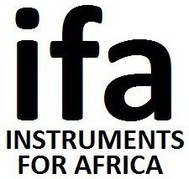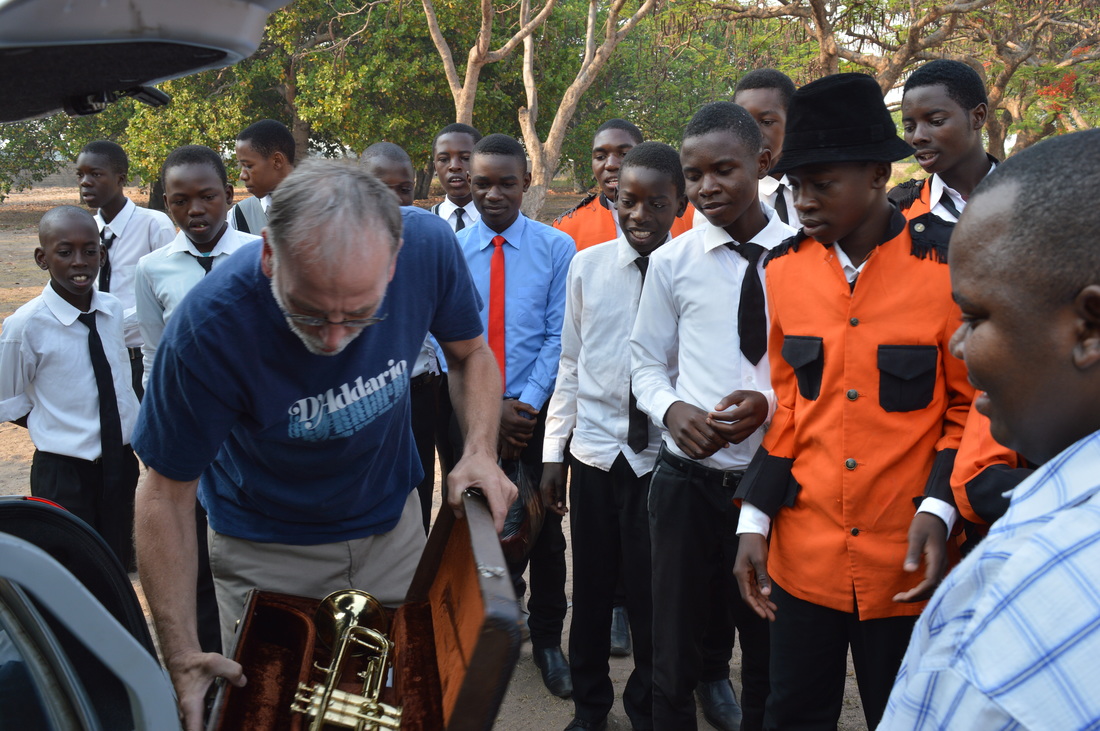
|
|
How Instruments For Africa Began
My name is Todd Snelgrove. I am an Ottawa-based guitarist and music teacher.
In May, 2012 I was fortunate enough to take my second trip to Africa, and once again the good people at the Ottawa Folklore Centre donated a guitar for my journey with the intention that I would find a good home for it along the way.
My daily adventures throughout South Africa and Namibia left me agog at the stark beauty of the land and warm kindness of the people. With the guitar constantly in tow I sought every opportunity to absorb the music around me and share my own musical culture with the smiling people I encountered.
With a loose itinerary I decided to spend the last week of my vacation in Zambia. As the bus crossed the border it was clear that the relatively stable social conditions enjoyed in South Africa and Namibia had not yet reached Zambia. The highway instantly deteriorated into a dirt strip rife with cavernous potholes, roadside homes and towns were replaced by tin and tar paper shacks while children dressed in rags worked hard pounding millet. If anything remained the same it was the quick smiles I met whenever I took out the guitar.
In Livingstone I did some digging and found that a nearby school was in need of musical instruments. I made an appointment with the headmaster and asked if their music department would have any use for a guitar. His eyes went wide. “It is nothing short of a blessing!” he exclaimed. “Please wait here while I get the department heads.”
The headmaster returned with both music teachers and I was given a tour of their facilities.
The Linda School is a public high school with an enrollment of 1,200 students from grade 10 to grade 12. With nearly 300 of the students shuffling through classes in the two-room arts department it's clear that music is a very important and sought-after discipline. Mr. Namaiko and Mr. Muyunda showed me to their office and pointed out the department's prized possession, a small portable boom-box that the teachers use to illustrate musical examples. “We have some CD's of Bach and Mozart that the children really enjoy.”
Atop a shelf in the small cubicle sat the school's sole musical instrument, a cheap Casio keyboard that has remained unusable since the AC jack broke two years ago.
“With no instruments in the school what do you teach the kids?” I asked.
“We can only teach singing and music theory, but the children work very hard.”
I was amazed. An entire music department in a large school in one of the country's major cities without a single, solitary musical instrument.
“It may be difficult for you to understand, but here in Zambia one cannot just go out and buy a guitar or a saxophone. It must be ordered from another country and many places will not do business over the internet with Zambia.
“A year ago we had a meeting with the school board and decided that a guitar would be the most practical instrument for us to have here at Linda School and though we secured funding we have still not been able to acquire one,” Mr. Namaiko explained. “So you can see why Headmaster Mateke calls your visit a blessing!”
The teachers asked if I would give the guitar to the students directly and we made arrangements for me to return the following morning.
When I arrived the next day I was brought to an outdoor auditorium. Rows of hard wooden benches sat before a small stage under a large thatched roof. The seats were filled with kids in their school uniforms and as I entered with the teachers the room fell obediently silent.
I told the kids that I was a music teacher from Canada and that my school had given me a guitar to donate to their school. The room erupted into whispered excitement as six hundred wide eyes stared up at me in rapt attention. The teachers asked if I could play some examples for the kids and I was pleased to do so. I played a short blues and by the second bar the whole room was clapping along in perfect time. They appreciated a few familiar melodies that I had picked up along the way but when I asked if they knew about reggae music it was clear that I had hit a nerve.
I started playing the syncopated chords that open Bob Marley's 'Three Little Birds' and was again blasted with perfect on-the-beat clapping. I sang the opening line, “Don't worry 'bout a thing,” and was flabbergasted when the whole crowd sang the next line back to me in unison.
“Every little thing is gonna be alright!”
It almost knocked me off my chair. All 300 voices booming out with nary a whisper among them. Together we sang the chorus again, and still louder these impoverished kids, these young men and women that sleep on dirt floors amid dusty streets sang one of the most hopeful and optimistic choruses in the pop catalogue with smiles as bright and wide as the African sky.
“I said, don't worry 'bout a thing because every little thing is gonna be alright!”
It will certainly stand out as one of my most memorable musical experiences.
After we finished 'Three Little Birds' I stepped down from the stage and asked if anyone would like to try their new instrument. You'd think I was handing out free iPhones in the Glebe; the entire student body jumped forward en masse, every kid doing anything they could just to touch the guitar. I left them with some extra strings and picks and a little booklet of chords and tuning instructions I had drawn up and walked away from the school aglow.
There is no question that guitar is destined to make a very real impact.
As I wound along the sun-baked streets on my way back to the hostel I encountered an older man sitting beside the road repairing shoes. He called me over. “I saw you with a guitar earlier,” he said. I explained that I had just left it at the school. “Oh,” he said, clearly disappointed. “ I was hoping you could show me some chords.”
The man told me that he occasionally borrows a neighbor's guitar and enjoys playing it very much, but that he found it difficult to find people who could teach him. He had no paper but I had a pen. I drew a fretboard on my own arm and one on his as well, and we sat under a tree for an hour while I showed him a handful of chords, fingering them on my arm while he meticulously copied my actions on his own.
The lesson ended with sincere thanks and hearty handshakes and I continued my walk home. Turning around I glimpsed the man sitting under the tree forming and reforming chords on his arm, his cobbler work completely forgotten.
It struck me how the man's life might be different if he had grown up with the same access to music that we enjoy here in Canada. Maybe he'd still be a cobbler, but perhaps after a long day repairing shoes in the hot sun he could enjoy the solace of making music. Perhaps he would have written a song for his lover or sang lullabies to his children. Or maybe he could have galvanised the spirit of his countrymen like Ali Farke Toure did for Mali or indeed as Bob Marley did for Jamaica and (clearly) much of the world.
Whether his musical soul would have been destined for greatness or simple humble pleasures, he unquestionably deserved the chance that social and political instability deprived him of. It's a sad reality, and one that is difficult to fathom for someone like myself that was born into a culture of riches.
With this in mind I propose a collective effort to equip the Linda School with adequate musical instruments and instructional material. These kids deserve the same musical opportunities that you and I enjoy.
Can you help?


